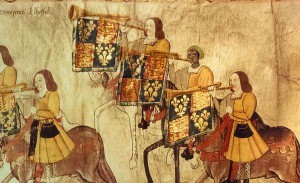The Ruling Stones: The Ethnic Activism of Richard Stone
Martyrs and Mothers
Who is England’s patron saint? If you think it’s St George, you’re behind the times. In fact, it’s the martyr St Stephen. But not the Stephen stoned to death in Palestine 2,000 years ago. No, the Stephen stabbed to death by Whites at a bus-stop in London in 1993. He was a young Black male, but that didn’t make his death unusual or worthy of special attention.

Black power: St Stephen Lawrence
It wasn’t until 2012, after huge expense by the London Metropolitan police and the abolition of the centuries-old principle of double jeopardy, that two White men were found guilty of the murder and given long jail sentences. Cries of joy greeted the conviction in all sections of the media, particularly at The Guardian and BBC. But further suspects are still free and Doreen Lawrence, mother of the murder victim, wants to see more millions spent on pursuing and convicting them.
Doreen has become a familiar and highly respected figure in the UK. She has recently been elevated to the House of Lords, where she will sit as Baroness Lawrence and continue to promote the martyr cult. She was prominent at the twentieth-year commemoration of her son’s murder, which was attended by the leaders of all three main political parties. And you may have seen her helping to carry the flag at the 2012 London Olympics. It was a further honour in recognition of her long campaign for justice, equality and tolerance in the UK.
The image of an aspiring young Black architect slaughtered by thuggish White racists continues to be reinforced through every medium of news, art and commentary. Doreen has often appeared in the media to criticize Britain for failing to live up to the high standards she demands of it as a British Jamaican. And the government listens. Here she is in the closing days of 2012 with fellow activist Dr Richard Stone, who will be the main focus of this essay: Read more





